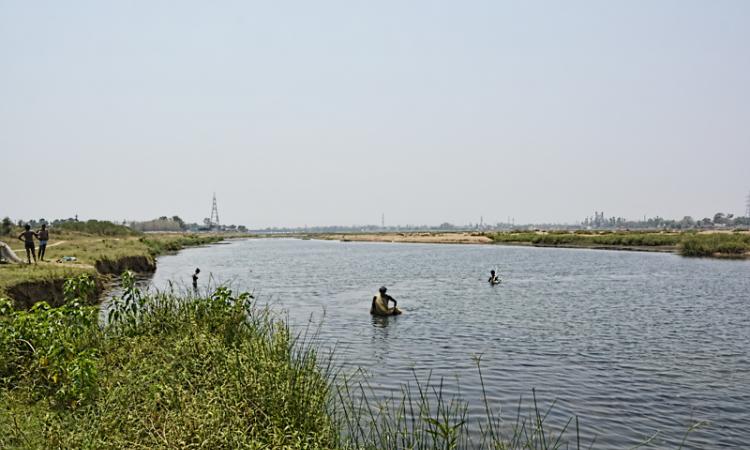
Centre releases DPRs to rejuvenate 13 rivers other than Ganga
In collaboration with the Jal Shakti Ministry, the Environment Ministry has released detailed project reports (DPRs) for 13 rivers, including the Yamuna, Krishan, Cauvery, Mahanadi, and Brahamputra. In the next five years, the government plans to spend over Rs 19,000 crore on expanding green cover along both sides of these rivers and their tributaries across 24 states and two union territories.
The purpose of carrying out forestry interventions in the catchment areas under the different landscape is to increase groundwater recharge, reduce erosion and recharge aquifers.
As part of the DPRs, a total of 667 treatment and plantation models are proposed, with plans for site-specific soil and moisture conservation practices. (The Times of India)
Greywater recycling project launched on World Water Day
On the occasion of World Water Day, the Jal Shakti Ministry has launched Sujalam 2.0, a nationwide project to reuse greywater, or water from kitchens, baths, and laundry.
The official statistics show that rural India alone releases 31,000 million tonnes of greywater daily, which goes to waste. It is estimated that this water, if stored evenly across the country, would last through any drought.
At the launch, the ministry also informed that under the groundwater recharge scheme, Atal Bhujal Yojana, 81 water-scarce districts will receive 10.42 million recharge units. These units will capture 1.85 billion cubic metres of monsoon rain. (Hindustan Times)
Panel highlights irregularities in projects related to the Accelerated Irrigation Benefits Programme
Parliamentary standing committee has raised concerns about ‘glaring irregularities’ linked to the Accelerated Irrigation Benefits Programme', such as fictitious and fraudulent expenditure. The programme aims to provide financial assistance to state governments to help speed up implementation of on-going irrigation projects.
Besides recommending that the Jal Shakti ministry make more effective use of satellite imagery to monitor irrigation potential, the Committee advised that increasing participatory model of water use will address irrigation problems effectively, provided that the AIBP scheme is strongly coordinated with users and their needs.
(The Print)
Environment experts call scrapping of GO-111 a death knell for two historical reservoirs in Hyderabad
Telangana government has called for rescinding Government Order (GO)-111, which was passed in 1996 to restrict major construction within a 10-km radius of full-tank levels of the two reservoirs - Osmansagar and Himayatsagar. The city's water requirements are no longer met by these reservoirs, according to the government.
Environment experts, however, disagree with the government's statement, calling it foolish to ignore the purpose of these reservoirs, which was to prevent flooding. Also, they state that GO-111 must be studied comprehensively to meet the needs and relevance of contemporary challenges rather than diluting it.
The purpose of scrapping the order is in favour of economic growth in about 1.32 lakh acre of land on the lake’s catchment area which covers 84 villages. (The Indian Express)
Centre releases national framework for promoting decentralised renewable energy livelihood applications
As part of its effort to encourage use of local renewable energy sources that can generate income, the Union Ministry of New and Renewable Energy (MNRE) has issued a national framework for decentralised renewable energy livelihood applications.
The framework aims to help create an ecosystem that will facilitate the widespread adoption of decentralised renewable energy-based livelihood applications in the country. It will guide state governments, central government ministries, and other stakeholders to design ways of promoting DRE livelihood applications.
Moreover, the framework could support and incentivise the adoption of decentralised renewable energy livelihood technologies among women and other marginalised groups such as Scheduled Castes and Scheduled Tribes. (Mongabay India)
This is a roundup of important policy matters from March 3 – 22, 2022. Also, read the news this fortnight.
/articles/jal-shakti-ministry-releases-dprs-revival-13-rivers